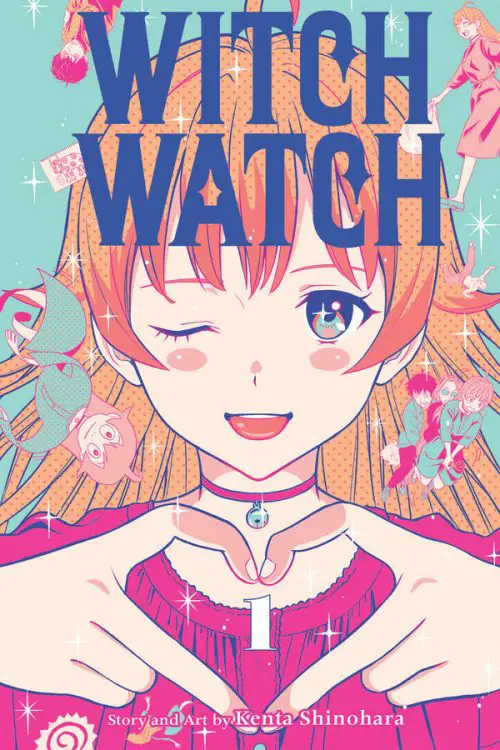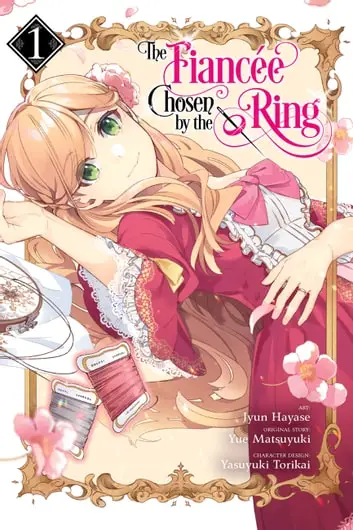My upbringing was, in certain respects, relatively sheltered. Of relevance for this post, I hardly ever heard anyone use profanity in real life. It might occasionally show up in a TV show or movie, but we mostly avoided works with such language, and in any case, those were fictional. Indeed, the fact that I practically never encountered cursing anywhere aside from fiction just fed my impression that it was a totally unrealistic behavior forced into stories to make them edgier.
I saw euphemisms, terms used as replacements for profanity (e.g., “darn” in place of “damn”), in a similar light. I still recall sermons I’ve heard on how it’s wrong to use euphemisms. I did encounter them in real life somewhat more than outright profanity, but it still seemed like a straightforward issue where it was “obviously” wrong to ever use certain words.
Finally, I learned to see profanity as contaminating. As well-meaning Christians have done with other sins, I bought into the concept that hearing or reading profanity was somehow defiling. Logically, then, it was my responsibility to avoid any form of media with cursing. And since euphemisms were every bit as bad as actual profanity, I needed to stay away from them too. There were books, TV shows, movies, and video games I avoided entirely because I learned they had profanity.
I no longer believe any of the things I just wrote in the preceding paragraphs, and I want to talk about why. More than that, I want to suggest that profanity has a legitimate place in storytelling. Consider this my addition to Beneath the Tangles‘ previous discussions about the concept of problematic content, the need for intellectual consistency, and the reality that witnessing sin in fiction isn’t inherently contaminating. With this post, I want to focus more specifically on cursing and its place in the stories we enjoy.
The Dawn of the Witch
As is often the case with major changes in one’s beliefs, my perspective on profanity changed through many events over a period of years. However, I want to highlight a few of those points, with a specific emphasis on the light novel An Archdemon’s Dilemma: How to Love Your Elf Bride, which played a pivotal role in my evolving views.
I owe my best friend and partner-in-crime in grad school, historian Dr. Jonathan Steplyk, for first shaking my assumptions about profanity. I don’t recall how the topic came up, but during a conversation, Jonathan pointed out that the exclamation “zounds” is a euphemism. Show of hands: how many of you already knew that? Well, I certainly didn’t, and I doubt I’m exceptional in that regard. But it is indeed a euphemism. Specifically, it’s a contraction of “God’s wounds.” I know, weird, right?
This incident forced me to reconsider everything I thought I knew about how sinful euphemisms are. The essential question was this: just how much etymological research does God expect us to do to make sure we don’t use any euphemisms? It’s patently absurd to think the Lord expects us to double-check the history and origins of every word we say. In my context (i.e., early twenty-first century America), “zounds” is a comical or deliberately archaic exclamation, and nothing more. If hardly anyone who uses or hears the term has a clue about its historical origin as a euphemism, is it really even a euphemism anymore?
This resonated with me particularly because of an incident back when I was around ten years old. I used a word I heard at school in conversation, was rebuked for it, and informed that it was a “bad” word. The word in question was, in fact, a euphemism, but I had no idea, nor had I ever heard the actual profanity from which it was derived. It wasn’t until many years later as an adult that I finally figured out what the problem was with that word. Basically, I had firsthand experience with the difficulty of knowing which words are euphemisms.
Ya Boy Kongming!
Now, none of the above directly applies to the issue of profanity, but these experiences are part of today’s tale because they forced me to question my long-held belief that there are straightforward rules about which words are “bad” and should never be used, heard, or read. Upon discovering that the lines are so much fuzzier than I supposed when it comes to euphemisms, I couldn’t continue to assume the truth about cursing was simplistic either. It made me more open to reevaluating my assumptions about profanity.
My years in graduate school, away from home and no longer at the Christian liberal arts college I attended as an undergrad, taught me something else more directly related to profanity: real people use it in real life! I know, I know, some of you are facepalming at the thought I was so sheltered that I had to learn this. This revelation totally wrecked my perception of profanity as something unrealistic and artificial that people hardly ever do in real life.
Now let’s fast forward, as years pass and I discovered Twitch, and through it, Crunchyroll, and because of anime, Beneath the Tangles, and because of BtT, I started reading light novels. #BlameBtT
Elf Bride is a fantasy romantic comedy with some adventure and drama elements. It stars an elite sorcerer (“Archdemon” being his title) named Zagan, along with the elf girl Nephy and a huge cast of characters. In keeping with my real-life experiences, most of the people in this story rarely curse.
The first notable exception is Barbatos, another sorcerer whom the narration itself often derides as Zagan’s “undesirable friend.” In fact, Barbatos plays an antagonistic role in the first volume, though he later shifts into more of an ally. Also, he has a filthy mouth and curses at least once or twice pretty much any time he appears in a scene. And at first that made me really uncomfortable. While I liked the first volume of Archdemon’s Dilemma overall, Barbatos’s uncouth vocabulary gave me pause.
But let’s get back to my grand epiphany: people curse in real life, and some of them even do it frequently. Shocking, right? #sarcasm
Barbatos’s use of profanity is not, in fact, gratuitous, nor is it used simply to make the story more “edgy.” It’s a deliberate part of how author Fuminori Teshima conveys to readers what kind of person Barbatos is. Zagan’s “undesirable friend” leads an unhealthy lifestyle, is often found drinking, and is an all-around loud, harsh, impolite, shady, thuggish character. And all this is reflected in his crude vocabulary. The fact that Barbatos speaks the way he does, while most of the light novel’s other characters only rarely (if ever) use profanity, is part of how readers come to understand why he’s such an “undesirable friend.” And his language is perfectly realistic; Barbatos’s cursing even reminded me of someone I knew.
I’ll conclude with the other notably foulmouthed character in Archdemon’s Dilemma: the knight-turned-butler Raphael. After coming to appreciate the literary function of Barbatos’s cursing, I started wondering if something similar was going on with Raphael, and after pondering the matter, I concluded that Raphael’s profanity likewise has literary function.
Raphael is a terrible communicator, in both verbal communication and body language. As a result, he tends to come off more harshly than he intends. His use of profanity is part of how the author consistently makes him seem belligerent and threatening. The crude way he speaks helps him to always come across as being angry and hostile, no matter what he’s trying to say. Part of Raphael’s backstory is that he’s killed hundreds of sorcerers, but that’s not because he intended to do so. It’s just that every time he encountered a sorcerer, his gruff attempts to be friendly (coupled with his increasingly infamous reputation) came across as aggressive and provoked the sorcerers to fight. Now, that still strains one’s credulity, but Raphael’s routine cursing certainly does help the story to sell the idea that he constantly looks and sounds as if he’s furious and about to lop off some heads.
After my big epiphany with Barbatos and the change in my perspective, I’ve seen profanity used in other stories in ways that struck me as realistic in context or that helped tell the story more convincingly. I do still think profanity can be gratuitous to the point of being unrealistic (or at least over the top by the standard of any person I’ve ever personally encountered). But I’ve also concluded that foul language can be a realistic, valid literary tool for an author to convey something about a character or situation. Rather than just trying to shun it completely, or pretend not to notice it, now I try to consider whether it means something when it comes up in fiction.
This doesn’t mean I’ve rejected everything I was taught. But I have recognized that some of what I heard (or at least how I understood it) was flawed. The Bible really does teach that we shouldn’t use profanity.
Let no corrupting talk come out of your mouths, but only such as is good for building up, as fits the occasion, that it may give grace to those who hear.
Ephesians 4:29
Let there be no filthiness nor foolish talk nor crude joking, which are out of place, but instead let there be thanksgiving.
Ephesians 5:4
The good person out of the good treasure of his heart produces good, and the evil person out of his evil treasure produces evil, for out of the abundance of the heart his mouth speaks.
Luke 6:45
No human being can tame the tongue. It is a restless evil, full of deadly poison. With it we bless our Lord and Father, and with it we curse people who are made in the likeness of God. From the same mouth come blessing and cursing. My brothers, these things ought not to be so.
James 3:8-10
Crucially, though, the emphasis in all these passages is what comes out of *my* mouth, not what I hear or read from others. These verses don’t say to avoid other people (real or fictional) who curse. They don’t suggest that we are somehow contaminated by hearing others speak in this manner. They don’t teach that we need to do etymological research to identify euphemisms. And they don’t deny the reality that profanity is a part of life that we’ll inevitably encounter as we struggle to love our neighbor. Curses ought not to be coming out of my mouth, but there’s no need for me to be unusually uncomfortable when they come out of others’ mouths.
“Undesirable friend” though he is, Barbatos challenged me to add more nuance to my understanding of profanity in fiction, and for that, I’m grateful.











Leave a Reply